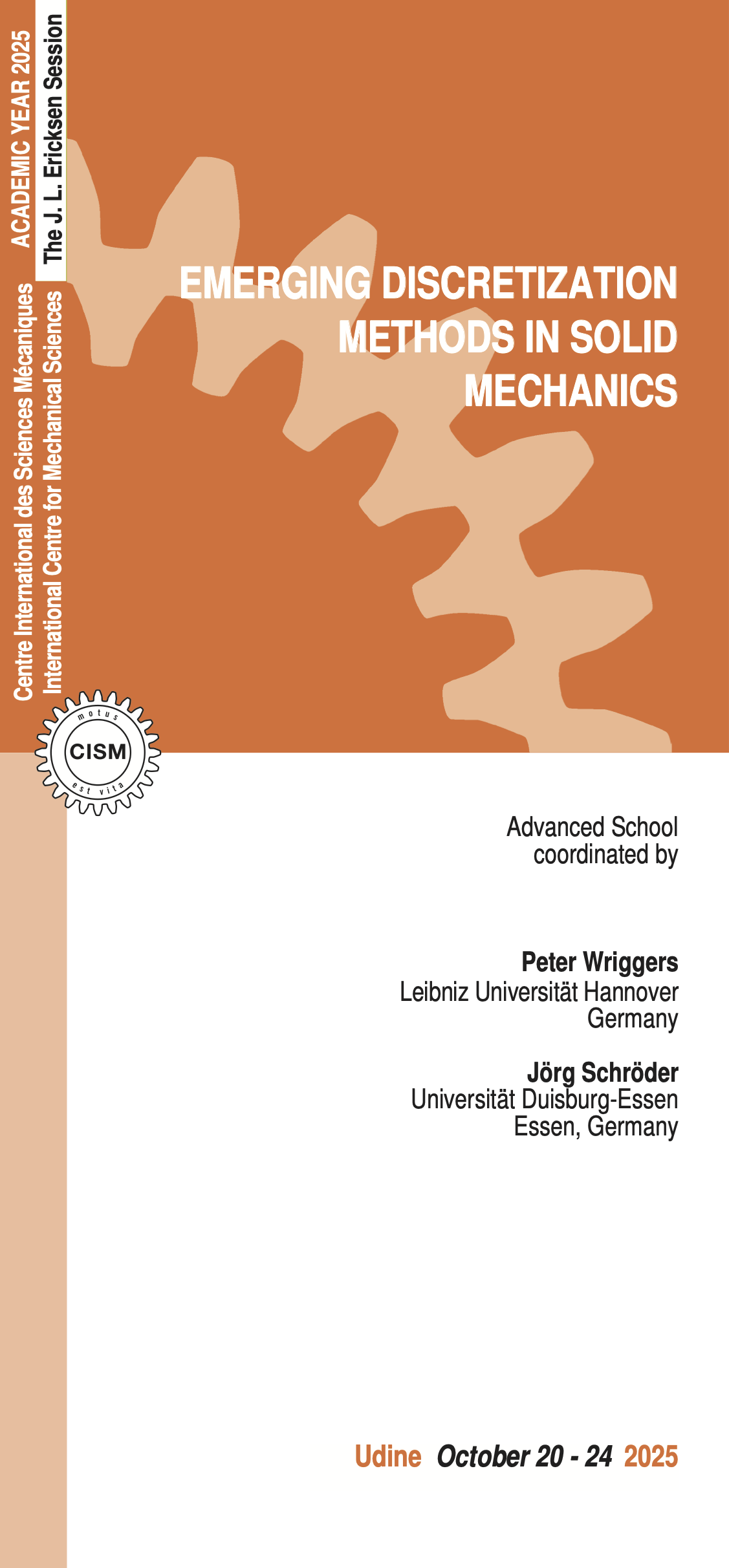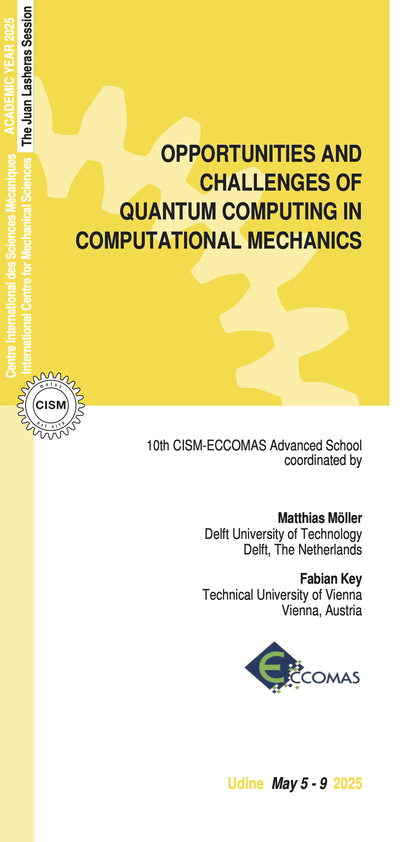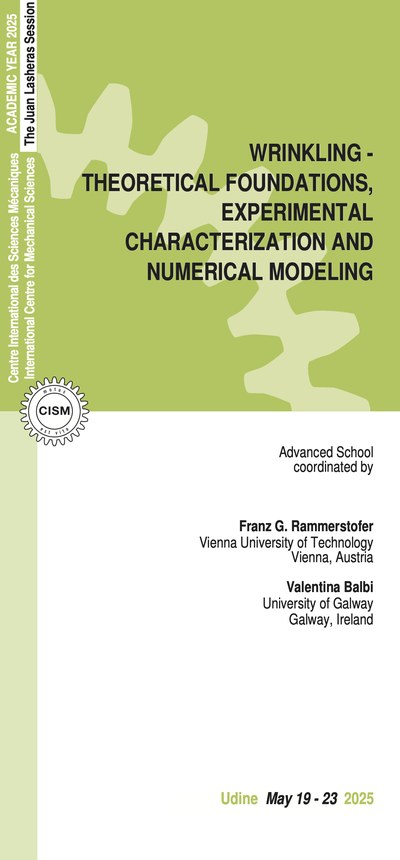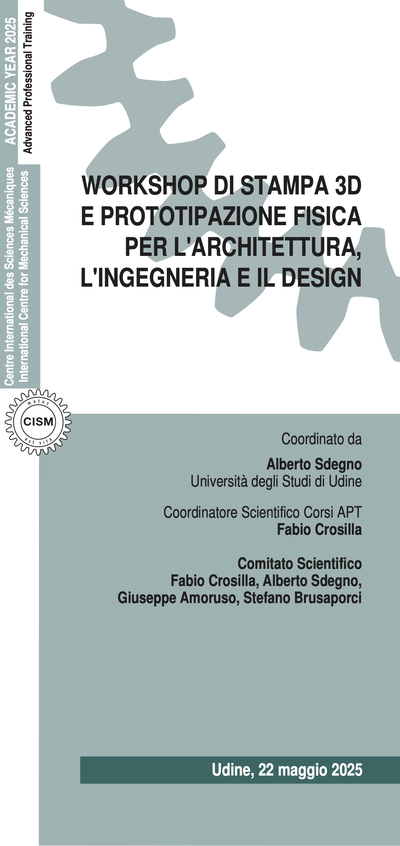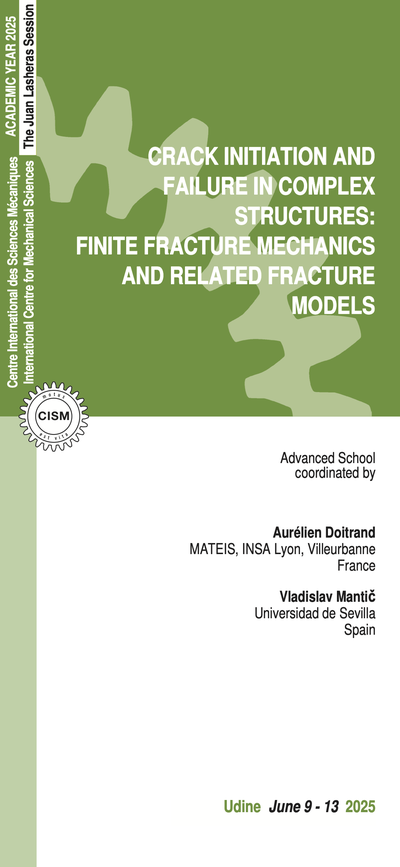This course provides an advanced exploration of numerical methods utilized in the analysis of solid mechanics problems. It includes sophisticated emerging techniques essential for addressing complex engineering challenges, focusing on both theoretical understanding and practical implementation. The techniques range from non-classical methods to machine learning.
Lectures will provide an in-depth exploration of lattice Boltzmann methods (LBMs) and their applications in solid mechanics. LBMs are a class of computational fluid dynamics techniques based on kinetic theory, but they have been extended to simulate a wide range of phenomena beyond fluid flow. Students will learn the fundamentals of LBMs and how they can be adapted to address various solid mechanics scenarios.
Another set of lectures deals with the least squares finite element method (LSFEM), which provides a robust framework for solving a wide range of boundary value problems. The theoretical and algorithmic formulations are derived for applications in solid mechanics. In addition, mixed finite element methods considering linear and nonlinear formulations are discussed and applied to engineering analysis problems.
Virtual element methods (VEMs) have a broad range of applications. VEM represents a new modern numerical discretization technique capable of handling complex geometries and heterogeneous material properties. The lectures provide students with theoretical foundations and hands-on experience in utilizing VEMs for solving solid mechanics problems efficiently and accurately.
A comprehensive description of the field of electro-magneto-mechanics will be discussed, starting from Maxwell and Cauchy equations, moving into sophisticated computational formulations and finishing with practical Finite Element technologies. With a primary focus on large strains, the course will cover fundamental aspects such as well-posedness and specific spatial discretization techniques. For applications into soft robotics (i.e. Electro-Active Polymers), development of structure preserving time integrators and data-driven Machine Learning type of constitutive models will demonstrate a broad range of realistic applications.
This course explores and critically questions the use of machine learning (ML) in solid mechanics applications. ML has proven to be a helpful tool for reducing computational costs and enabling accurate representations of data ranging from experiments to high-fidelity simulations. The lectures cover the principles of ML techniques and discuss their possibilities to solve partial differential equations, facilitate multiscale problems, and describe constitutive behavior.
Further lectures explore automation of discretization techniques in the context of the numerical methods discussed in the course. It will be shown that automation helps to develop more complex emerging discretization techniques like the virtual element method.
The course will appeal to doctoral students and postdoctoral researchers from academia and industry. Participants will gain expertise in employing different numerical methods to accurately model and simulate a wide range of solid mechanics phenomena.P. Wriggers, F. Aldakheel, B. Hudobivnik (2023), Virtual Element Methods in Engineering Sciences, Springer.
P. F. Antonietti, L. Beirao da Veiga, G. Manzini (2022), The Virtual Element Method and its Applications, SEMA SIMAI Springer series Vol 31, Springer.
J. Schröder, A. Schwarz, K. Steeger (2016), Least-Squares Mixed Finite Element Formulations for Isotropic and Anisotropic Elasticity at Small and Large Strains, in: Schröder, J., Wriggers, P. (eds) Advanced Finite Element Technologies. CISM Vol 566. Springer.
A. Schwarz, K. Steeger, M. Igelbüscher, J. Schröder (2018), Different approaches for mixed LSFEMs in hyperelasticity: Application of logarithmic deformation measure, IJNME, 115, 1138–115.
S. Kumar, D. M. Kochmann (2022), What machine learning can do for computational solid mechanics. In Current trends and open problems in computational mechanics (pp. 275-285), Cham: Springer.
J. N. Fuhg, G. A. Padmanabha, N. Bouklas, ..., L. De Lorenzis (2024), A review on data-driven constitutive laws for solid, arXiv:2405.0365.
O. Boolakee, M. Geier, L. De Lorenzis (2023), A new Lattice Boltzmann scheme for linear elastic solids: periodic problems, CMAME, 404: 115756.
O. Boolakee, M. Geier, L. De Lorenzis. Lattice Boltzmann for linear elastodynamics: periodic problems and Dirichlet boundary conditions, https://arxiv.org/abs/2408.01081.
M. Horak, A.J. Gil, R. Ortigosa, M. Kruzik (2023), A polyconvex transversely-isotropic invariant based formulation for electro-mechanics: stability, minimisers and computational implementation, CMAME, 403: 115695.
F. Marín, J. Martínez-Frutos, R. Ortigosa, A.J. Gil (2021), Convex Multi-Variable based Computational Framework for Multilayered Electro-Active Polymers, CMAME, 374: 113567.
J. Korelc, P. Wriggers (2016), Automation of finite element methods, Springer.
6 lectures on: Lattice Boltzmann methods for solid mechanics.
Overview of lattice Boltzmann methods. Lattice Boltzmann for linear elastostatics: the multi-relaxation-time collision operator; boundary conditions. Lattice Boltzmann for linear elastodynamics: vectorial lattice Boltzmann. Examples and programming guidelines.
6 lectures on: Machine learning approaches in solid mechanics.
The lectures explore and critically question the use of machine learning (ML) in solid mechanics applications. They cover common ML techniques and discuss how ML is used to solve PDEs, facilitate multiscale problems, and describe constitutive behavior.
6 lectures on: Electro-magneto-mechanics and applications.
Electro-magneto-mechanics continuum fundamentals; on well-posedness and material stability; computational frameworks (high order and mixed Hu-Washizu methods); structure preserving time integrators; intro on Gaussian Predictors constitutive metamodels.
6 lectures on: Automation of the emerging discretization methods for engineering applications.
The lectures focus on aspects of automation of computational modelling. Automatic differentiation-based formulations are introduced for coupled, path-dependent problems. Symbolic descriptions of VEM using the code generator AceGen are discussed and implemented in the environment AceFEM.
6 lectures on: Least squares finite element methods.
Overview of mixed finite element formulations: Hellinger-Reissner, Hu-Washizu, and least-squares formulations. Detailed treatment of the Least Squares Finite Element Method (LSFEM). Discussion of the advantages and disadvantages of LSFEM when compared to other methods.
6 lectures on: Virtual element methods for solid mechanics.
Overview of the virtual element method (VEM): Introduction of VEM using trusses and beams – general formulation for two- and three-dimensional solids for linear and nonlinear problems – applications to contact mechanics and homogenization.
ADMISSION AND ACCOMMODATION
The course is offered in a hybrid format, allowing participants the flexibility to attend either in person or remotely via the Microsoft Teams platform.
Admission to on-site attendance is granted on a first-come, first-served basis to comply with the capacity of the lecture room.
Application forms should be submitted online through the website: http://www.cism.it. A confirmation message will be sent to participants whose applications are accepted.
Registration fees:
- Early Bird On-Site Participation: € 650.00 + VAT* - Deadline: August 20, 2025
- Late On-Site Participation: € 800.00 + VAT* - Deadline: October 7, 2025
- Live Streaming Online Participation: € 250.00 + VAT* - Deadline: October 7, 2025
On-site participation includes a complimentary bag, five fixed menu buffet lunches, hot beverages, downloadable lecture notes.
Online participation includes downloadable lecture notes.
Upon request, and subject to availability, a limited number of on-site participants can be accommodated at the CISM Guest House for € 35 per person per night. To request accommodation, please contact foresteria@cism.it.
CANCELLATION POLICY
Applicants may cancel their registration and receive a full refund by notifying the CISM Secretariat in writing (via email) no later than:
- August 20, 2025, for early bird on-site participation;
- September 20, 2025, for late on-site participation;
- October 7, 2025, for online participation.
No refunds after the deadlines. Cancellation requests received before these deadlines and incorrect payments will be subject to a € 50.00 handling fee.
GRANTS
A limited number of participants from universities and research centers who do not receive support from their institutions can request a waiver of the registration fee and/or free lodging.
Requests should be sent to the CISM Secretariat by August 20, 2025, along with the applicant's curriculum vitae and a letter of recommendation from the head of the department or a supervisor confirming that the institute cannot provide funding. Preference will be given to applicants from countries that sponsor CISM.
